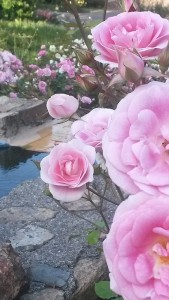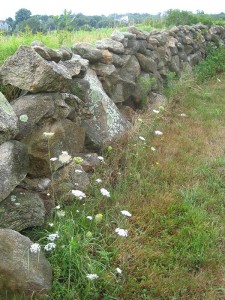 Belonging is one of the most basic needs we have. Without it, we would be lost in a dangerous world with no protection from others. Without it, we lack the basic social connections we need to feel safe and well and whole. Without it, frankly, it’s hard to know who we are.
Belonging is one of the most basic needs we have. Without it, we would be lost in a dangerous world with no protection from others. Without it, we lack the basic social connections we need to feel safe and well and whole. Without it, frankly, it’s hard to know who we are.
We all belong to our ancestral families, right? This is a key insight from Family Constellations work – regardless of how we feel, we were born into a tribe and, even if we get thrown out or run away, we belong. We are Irish or Nigerian or Peruvian. Or we’re Irish and Nigerian and Peruvian. We belong to this.
Over the years, I’ve discovered that some of us have a much stronger feeling of belonging to our ancestors than others do, and that strongly impacts how much we can experience belonging generally (more on the below).
In my family, for instance, we have very little sense of belonging to our ancestors. It’s as if we all just popped up in the last few decades! This is true despite the fact that we actually know quite a lot about the English, Germans and French from whom we descended.
They have vivid stories: one thread is part of Quaker migration and living for over two centuries in Philadelphia; another thread settled in Colorado and ended up being prominent in governance; a third ran a slave plantation in Haiti and barely escaped the revolt in 1790.
Amazing, impressive stories, but…so little feeling. It feels more as if we’re talking about generic history, rather than our own flesh and blood people who had real losses, accomplishments, violations and betrayals. I’ve found this common, especially for ancestors like mine who have been in the Americas a long time, and been part of the dominant culture.
What is the result for me? I’ve always struggled a bit with belonging in my life. The whole things feels, well, a bit abstract.
Other clients have, for better or worse, an intense sense of belonging to their ancestors. They may or may not know the stories, but they can feel their tribe and how inescapable it is. For many, this is a beautiful experience that fills them with pride: “This is who I am. This is who we are.” And for others, it feels like a burden which keeps them from feeling like they can truly be themselves.
Often, this is the experience of people who grew up with a strong culture centered on a specific ethnicity. It can be related to being a minority surrounded by an unfriendly, dominant culture. It can also be related to being raised in a fairly homogeneous country and the people have been there a long time.
For these people, the result is they can resist belonging in life, and find it hard to belong in other ways.
Which are you? Do you have a strong sense of belonging to your ancestors, or does it feel almost theoretical?
In either case, the truth is still there: we all belong to and come from our ancestors.
 Because, honestly, what’s at stake here, other than how you feel about your ancestors? Here’s what has been noticed for a long, long time: the less we belong to our ancestors, the harder it is to belong to the world and others. So, growing our sense of belonging to our ancestors, and feeling good about that, is incredibly important to how well we feel in life.
Because, honestly, what’s at stake here, other than how you feel about your ancestors? Here’s what has been noticed for a long, long time: the less we belong to our ancestors, the harder it is to belong to the world and others. So, growing our sense of belonging to our ancestors, and feeling good about that, is incredibly important to how well we feel in life.
The good news? Regardless of whether that feels good or bad, abstract or very concrete, it is possible to feel our belonging in a good way, which still allows us to feel authentically free.
So, for the person like me who feels like ancestry is hard to feel, we can grow that sense of meaningful connection.
And for the person who senses their belonging strongly but feels like it is overbearing and keeps them from being free, we can find a way forward that allows us to belong but gives us lots of room to grow and be ourselves.
How? Try saying this to your ancestors: “Thank you for my life. I honor the dignity of your fate. Please bless me as I choose another way.”
Okay, okay, I know it can be WAY harder than this. But sometimes it isn’t. And if it is, then we are curious about what still needs to be seen and included so that it can be, truly, easy to say.
What is your experience of belonging to your ancestors and to life in general? Please share your experience, comments and questions on my blog here. I am really supported when people who connect with what I write share it so that others can see it, so I would be hugely grateful, if you have a response, to please share it there. Thank you!
Thank you Leslie. The healing statement arrived at the right time.
So glad to hear that Karin! It’s had a great effect on me over the years, too.
Such a powerful place of exploration for me, Leslie. Thank you.
On reading your post, I was struck by how the different sides of my family (mom’s side, dad’s side, other dad’s side) fall into different groups: mom’s and other dad’s sides both with boastful stories but less feeling; dad’s side with lots of silence all around.
And on my mom’s side, where I feel a powerful pull and a place of great trauma, there’s a different relationship with it across the generations—ending with me and lots of resistance to certain deeply hurtful patterns…mixed with gratitude for certain deep strengths that have emerged, unbidden, during periods of crisis.
I sense this is an ongoing area of work and exploration for me…one which I’ve only just begun. So much gratitude for your work and nudging.
So beautiful! Yes, the different threads of our lineage can have really different feelings. People often feel – for better or worse – that they belong more to one side than another. Blessings on your explorations…
Thank you for this piece, Leslie. Wonderful questions to ask as I explore my sense of connection and belonging with my ancestry. I, too, have many ancestors who’ve been in the US for a long time (some almost 300 years). My family (and my husband’s family) of the last 4-8 generations have all belonged to a unique religious group/culture that we have chosen to leave. The sense of belonging within my family and cultural group was very strong; leaving that religion was an extremely difficult (but right) choice. My growing understanding of family constellations work is very helpful in coming to terms with how this has affected me. I will be using that statement often (“Please bless me as I choose another way.”); it is perfect right now. Again, thank you.
Sorry to take a few days to respond to this wonderful comment, Bonnie. The sentence from Bert Hellinger fits your situation to a “T”. It is our destinies always to belong to our families, and inevitably to find a different way. That’s the genius of sexual reproduction – we aren’t clones of our parents, which strengthens us all, but we also are half of each, which keeps us connected. So glad this specific way of honoring that was useful for you.
Great article, Bonnie, thank you.
I used to feel upset about my ancestors not being able to offer me certain things, like guidance between business plans/iterations, until I realized that I, as a next generation, am not meant to be understood by or guided by my ancestors in everything. It’s okay that I’m an evolution.
It’s okay if all they help me with is matters of the heart.
I value those more now.
I lucked out to live in one of my parents’ countries of origin when I was ages 10-22, so I have a stronger sense of connection to that culture than was otherwise available to me. That experience (and moving back to North America, but not the same country I was born in) also gave me insight into how immigration has the effect of creating another culture all its own – one that can feel lonely, but can also be unwrapped as the gift to give to my current community:
I offer an ‘outsider’s’ insight and confidence that things can be & feel different,
with an ‘insider’s’ level of compassion for, and long-term commitment to, North America’s cultural development.
Thank you for playing your part in that.
sorry – I meant to thank Leslie, but wrote Bonnie. Internet abstraction-levels are tough for my kinesthetic heart. Thank you Leslie.
Thanks for these thoughts, Briana. What you say is really interesting. I love your evolution on what to ask for or expect from your ancestors. And your “outsider” experience is really useful, too. So glad you had time in your parents’ country!